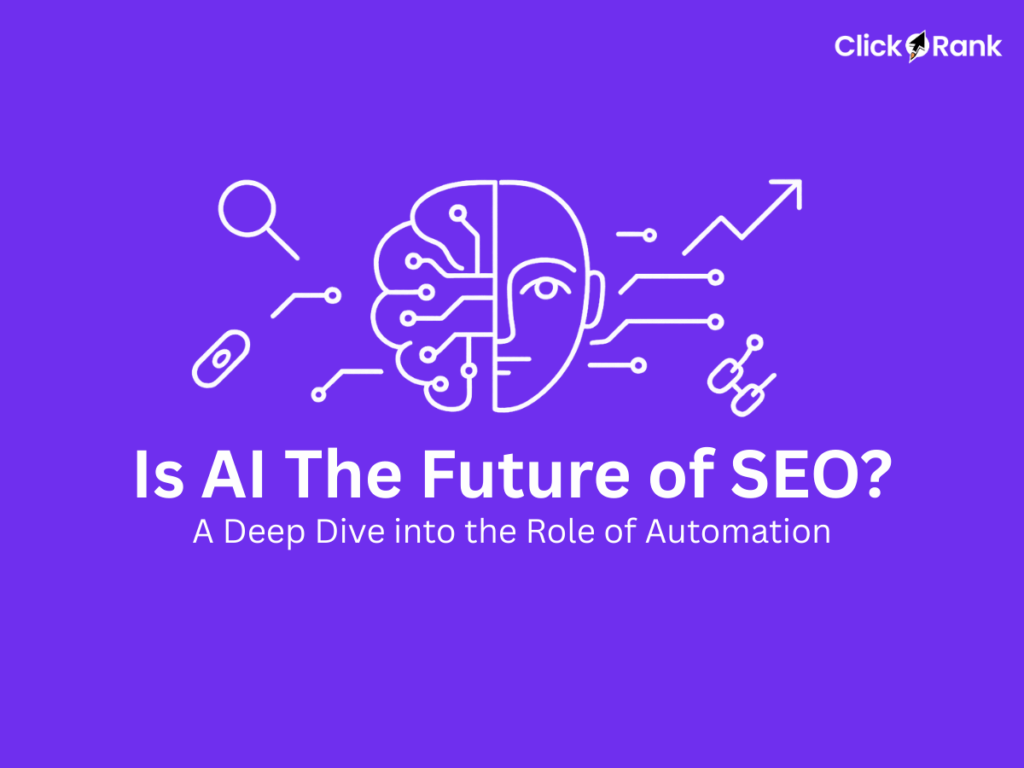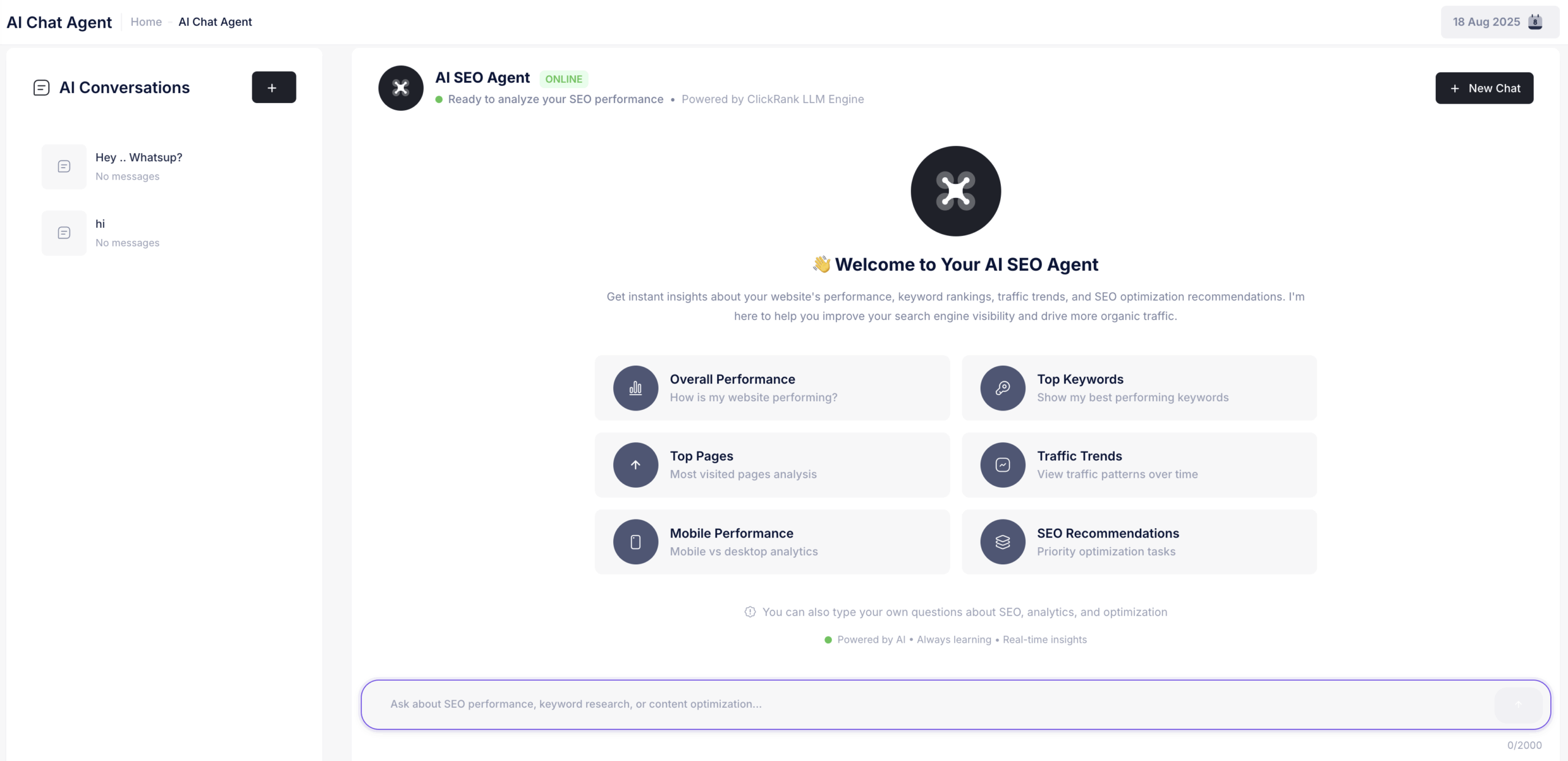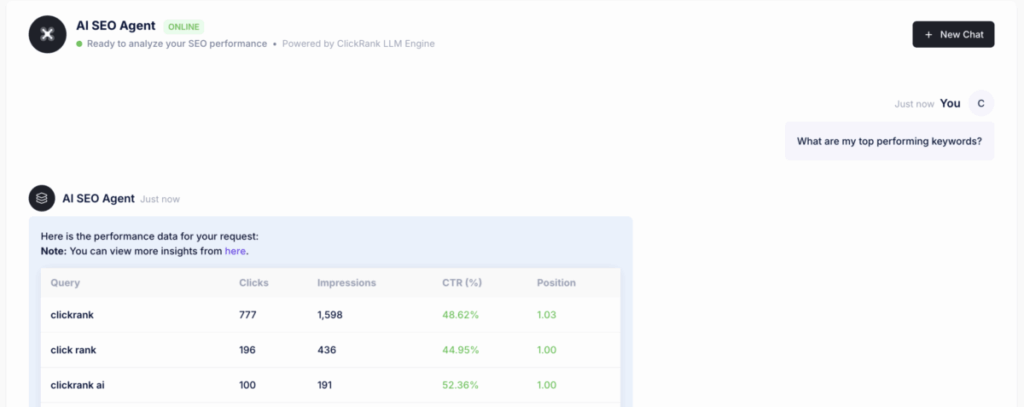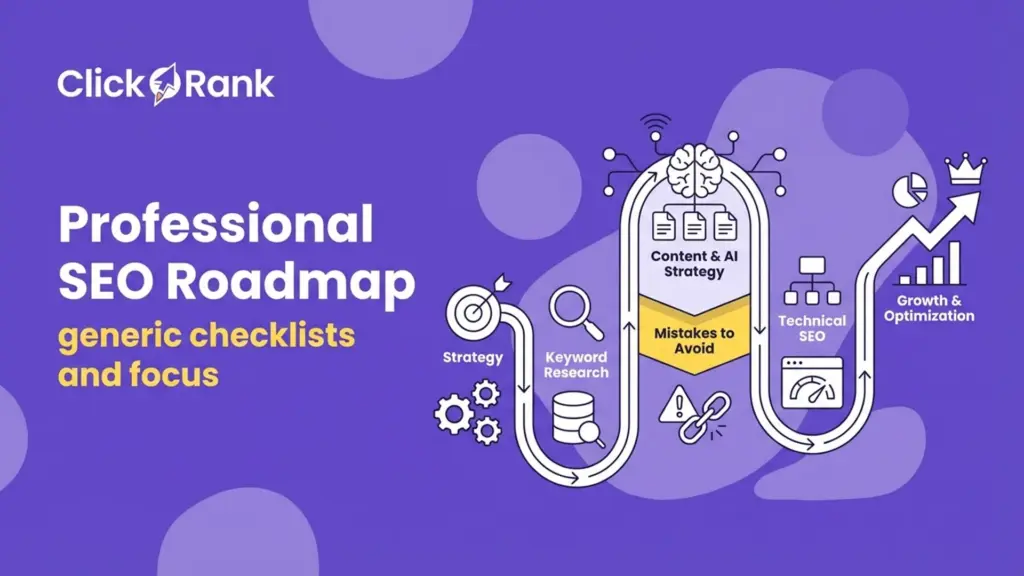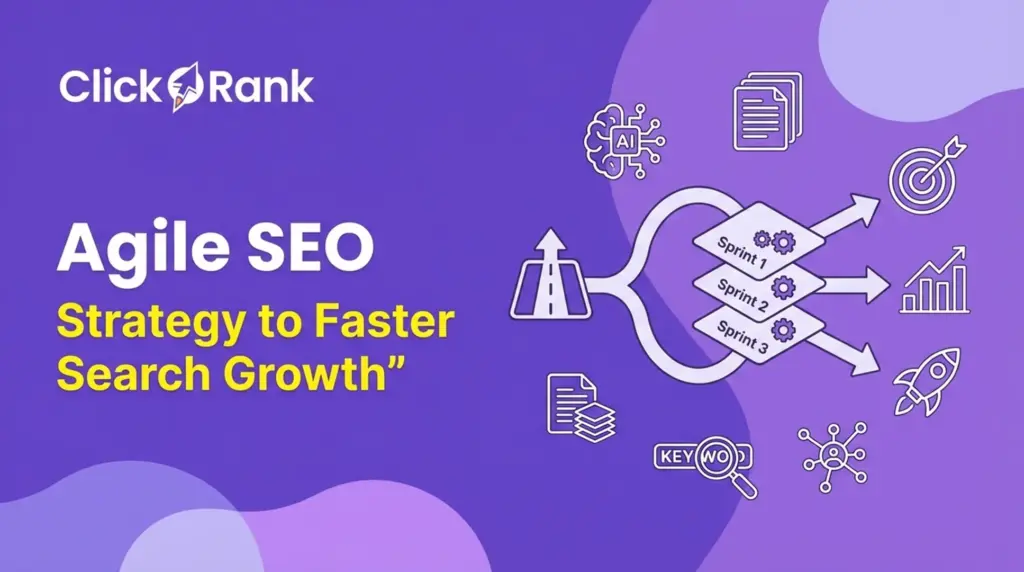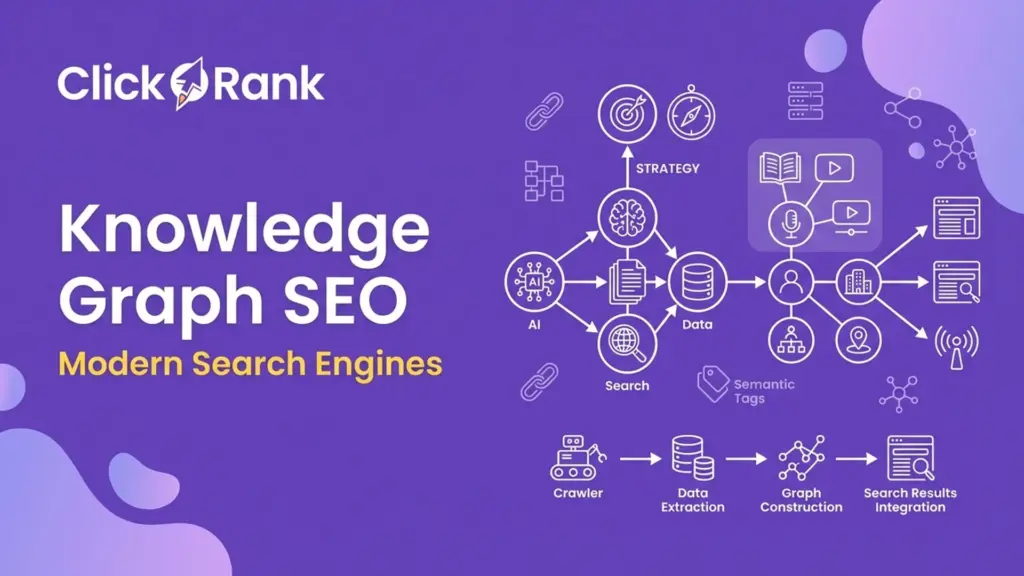The digital landscape is in the midst of a seismic shift, with artificial intelligence disrupting virtually every field, and search engine optimization is no exception. As AI tools grow more sophisticated and seamlessly integrate into our daily work, a critical debate has emerged within the industry. Is AI a threat that will render SEO professionals obsolete, or is it a powerful enabler that will redefine the future of SEO profession for the better?
This isn’t a question about whether AI will play a role in SEO, it’s a question of how. The truth is, the AI SEO Agent is no longer an optional add-on; it’s becoming the central nervous system of a modern, efficient, and data-driven SEO strategy. This blog post will take a deep dive into how AI is shaping the future of SEO, why automation is no longer a luxury but a necessity, and what it means for the professionals who navigate this evolving landscape.
How Has SEO Evolved from Manual Work to Automation?
The Old World of SEO: Keywords, Backlinks, and Manual Audits
In the early days of SEO, the work was a manual grind. Success was often measured by a professional’s ability to find keywords and stuff them into content, build a large number of backlinks, and perform tedious, page-by-page site audits. It was a repetitive and reactive workflow, often managed through cumbersome spreadsheets and a series of disconnected tools.
How Did Google’s Updates Change SEO?
Google’s continuous evolution changed everything. With algorithm updates like RankBrain and the growing emphasis on E-E-A-T (Experience, Expertise, Authoritativeness, and Trustworthiness), the focus shifted dramatically. The new rules demanded a higher standard of content quality and a more sophisticated, strategic approach to a website’s overall health. This forced the industry to move beyond manual work and embrace automation. Tools like SEMrush and Ahrefs brought new levels of efficiency, automating everything from rank tracking to backlink analysis. They freed up countless hours, but a key piece was still missing: the intelligence to connect the dots and move from data to action.
How Is AI Already Transforming SEO in 2025?
Today, AI is no longer just a futuristic concept; it is an active, transformative force in the day-to-day work of SEO. It is not only making existing tasks faster, but also making them smarter by providing insights that were previously impossible to uncover.
Keyword Research
Traditional keyword research was a static process, often limited to searching for high-volume keywords. Modern AI, however, clusters keywords by user intent, not just by volume. This allows professionals to see the deeper motivations behind a search and build a comprehensive content strategy that targets an entire topic, not just a single keyword.
Content Strategy
AI’s power in content creation is not limited to writing. Through Natural Language Processing (NLP), AI can perform semantic analysis on top-ranking content to provide deep insights on the topics that need to be covered. To get a head start on building out those comprehensive topics, a tool like free Blog Post Ideas Generator can provide a list of relevant content ideas you might not have considered. This ensures your content is not just well-written, but also comprehensive and topically relevant.
Technical SEO
Technical audits were once a time-intensive, reactive process. Now, AI can continuously monitor a website’s technical health. It can detect and flag crawl traps, duplicate H1 tags, site speed issues, and broken links in real-time. This turns a long, tedious audit into a proactive monitoring system.
Search Intent
AI-driven search engines are getting better at understanding user intent, and your strategy must adapt. AI tools can analyze Search Engine Results Pages (SERPs) and provide a clear, data-backed understanding of what users truly want, allowing you to create content that perfectly aligns with their needs.
The truth is, the AI SEO Agent is no longer an optional add-on; it’s becoming the central nervous system of a modern, efficient, and data-driven SEO strategy. This blog post will take a deep dive into how AI is shaping the future of SEO, why automation is no longer a luxury but a necessity, and what it means for the professionals who navigate this evolving landscape.Why Traditional Tools Fall Short in a Modern SEO World.
Why Do Traditional SEO Tools Fall Short in 2025?
While traditional SEO tools bring welcome efficiency, they ultimately fail to meet the demands of a modern, AI-driven search environment. Their core flaw is that they are fundamentally passive.
The biggest problem for professionals today isn’t a lack of data; it’s an overwhelming flood of it. Dashboards filled with hundreds of metrics, charts, and reports can be a source of noise, not clarity. Traditional tools provide a static snapshot of your website’s performance, but this data gets outdated the moment a new algorithm update or a competitor’s move changes the landscape.
This leads to a reactive, disconnected approach to optimization. You find an issue, fix it, and then move on, without understanding how that fix impacts the broader strategy. The missing piece in this workflow is actionable intelligence and prioritization. A list of 100 errors isn’t helpful if you don’t know which two will drive the most significant growth.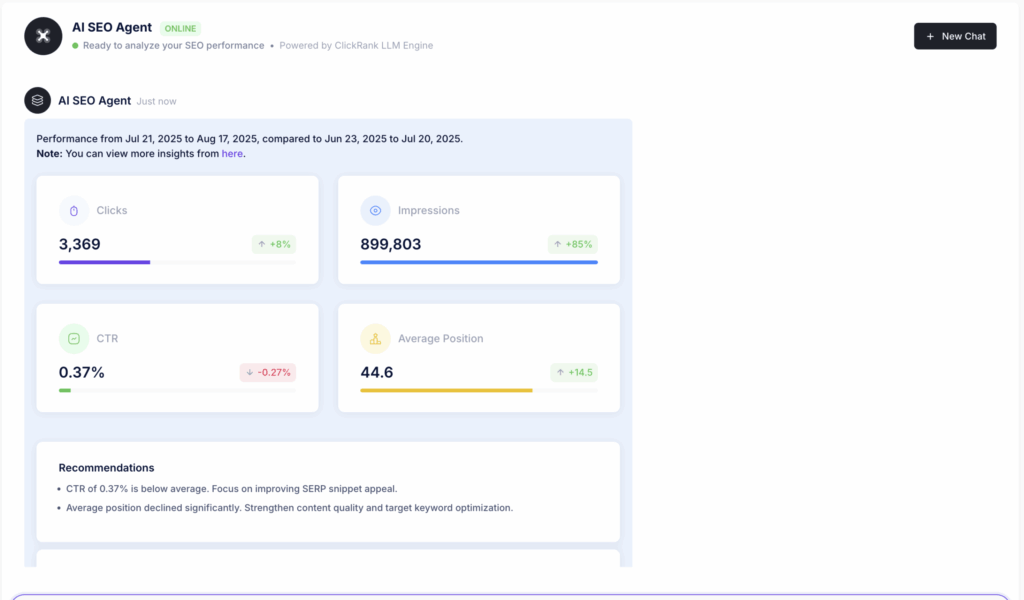
The Rise of AI SEO Agents
This gap between data and action has led to the emergence of a new category of technology: the AI SEO Agent. An agent is not just a tool; it is an autonomous SEO partner designed to think, act, and communicate.
Traditional SEO tools tell you, “here’s what’s wrong.” An AI SEO Agent, on the other hand, tells you, “here’s what matters and why.” It is a goal-oriented system with a strategic purpose.
An agent’s capabilities go far beyond those of a conventional tool:
Strategic Insights
An agent doesn’t just show you keyword data. It performs continuous competitive and content audits, delivering strategic insights on content gaps and which pages to prioritize for a ranking boost.
Autonomous Monitoring
An agent constantly crawls and monitors your site in real-time, instantly identifying and diagnosing technical issues as they arise, a level of proactive maintenance that is impossible to achieve manually.
Actionable Answers
The agent communicates in plain, simple language. You can ask complex, strategic questions like, “Which underperforming pages have the most ranking potential?” and it will deliver a concise, data-backed answer, not a raw data dump.
What Are the Real-World Use Cases of AI in SEO?
The theoretical power of an AI SEO agent is made real through its ability to solve complex, real-world problems with unprecedented efficiency and scale.
Content Gap Analysis
An agent can analyze your top competitors’ websites and provide a list of topic ideas you are not yet covering. This allows you to build a comprehensive content strategy and outrank them by owning a topic cluster.
Internal Linking
Instead of manually searching for relevant links, an AI SEO agent can map your site’s entire link graph. It identifies high-authority pages and builds strategic internal links to your most important content, naturally boosting its rankings.
E-commerce SEO
For an e-commerce store with thousands of products, manual SEO is impossible. An agent can automate on-page optimization, from adding unique meta tags to implementing product schema across every single page in minutes.
Real-Time Monitoring
An agent continuously monitors your site for crawl and index issues. If a new page isn’t being indexed correctly, or if a recent theme update causes a crawl error, the agent spots it instantly and alerts you, allowing for immediate action.
These capabilities don’t just save time, they drive scalable results that would take weeks of manual work to achieve.
Will AI Replace SEO Professionals?
This is the most critical question facing the industry. The fear that “AI will take SEO jobs” is understandable, but it is fundamentally based on a misunderstanding of AI’s role.
The reality is that AI handles the data crunching, while humans bring the strategy, creativity, and empathy that machines can never replicate. AI excels at repetitive, rule-based tasks and processing vast datasets, which are crucial but often uninspiring parts of the job.
The future of SEO is a hybrid model. AI augments SEO professionals, turning them from data pullers and troubleshooters into high-level strategists and creative leaders. The professional of tomorrow will be the one who can ask the right questions, interpret AI-generated insights, and translate them into a compelling vision for a brand.
How Can Businesses Prepare for an AI-Driven SEO Future?
The AI-driven shift is already here, and those who embrace it early will gain a significant competitive edge. The time to adapt is now, not when the competition has already passed you by.
The key to preparing for this future is not to fight the technology, but to make it a central part of your workflow. This means:
Upskilling SEO Teams
Focus on training your teams to be strategists rather than technicians. The new skills are in data interpretation, creative content, and managing an AI co-pilot, not in manual tasks.
Making AI SEO Agents Central
Integrate AI SEO agents into the heart of your workflow to automate the mundane and free up your team to focus on high-impact work.
The ClickRank AI SEO Agent is the first-ever autonomous SEO agent designed for this future, a true partner in this new era of SEO.
Conclusion
AI isn’t replacing SEO, it’s redefining it. The days of manual, reactive, and guesswork-based SEO are over. The new era is about merging the limitless power of AI with irreplaceable human expertise. Businesses that recognize this truth and build a collaborative, AI-augmented workflow will be the ones that outpace their competition and achieve unprecedented growth.
The future of SEO is here, and it belongs to the smarter, faster, and AI-empowered professional.
Is AI the future of SEO?
Yes, AI is undeniably the future of SEO. It is transforming the industry by automating repetitive tasks, providing deeper insights, and enabling professionals to move from reactive fixes to proactive, strategic growth.
Can AI replace SEO professionals?
No, AI will not replace SEO professionals. Instead, it will augment them. AI handles the data crunching and automation, while humans provide the crucial strategic vision, creativity, and ethical oversight that are impossible for a machine to replicate.
How is AI different from traditional SEO tools?
Traditional tools provide raw data and metrics. AI SEO Agents go a step further by analyzing that data to provide direct, actionable answers to strategic questions. An agent is a proactive partner that tells you what matters and why.
How can businesses prepare for AI in SEO?
Businesses should prepare by embracing a hybrid model. This involves upskilling their teams to focus on strategy and creativity while integrating AI SEO Agents into their workflow to automate data analysis, technical audits, and content optimization.
